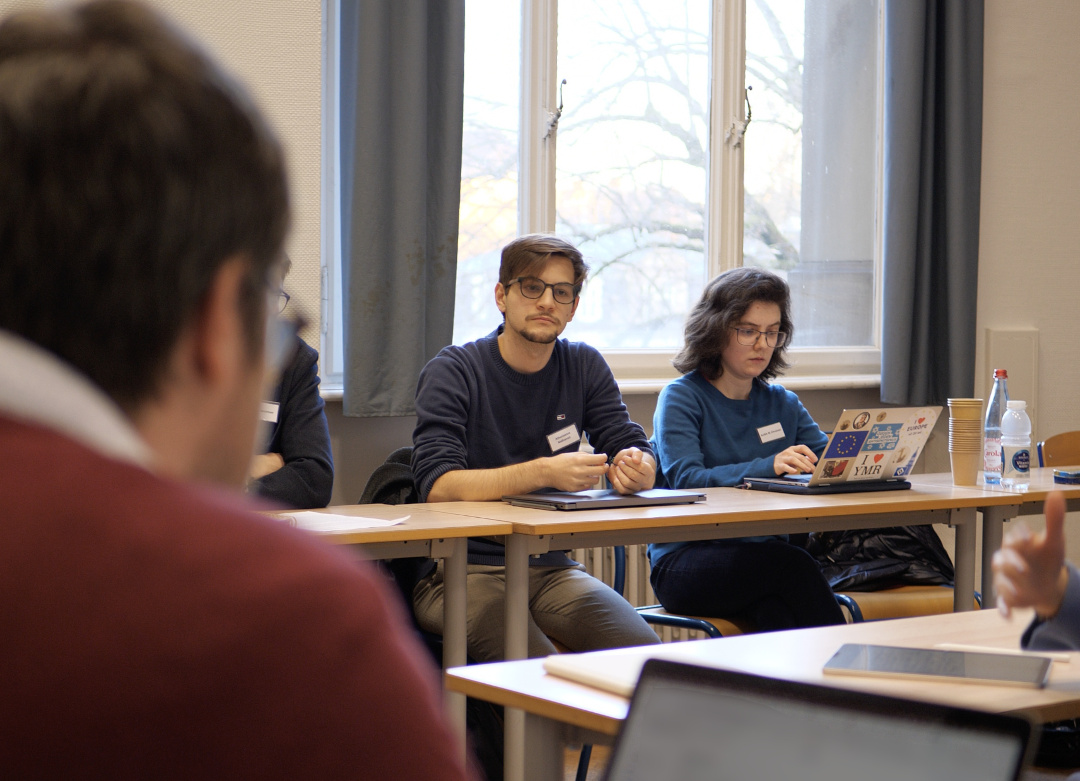How did the idea for the EPICUR Winter School come about?
The initiative for the Winter School emerged from existing research collaborations between six experts in the field of history, who co-organised and taught the programme: “I was contacted by my Freiburg colleague Friedemann Pestel to join the project”, recalls Alexandre Dupont, lecturer at the University of Strasbourg. Friedemann Pestel, associate Professor at the University of Freiburg, had already been in contact with three other colleagues from EPICUR universities working on 19th-century phenomena like nationalism, the far right, exiles and conservatism. “We thought, let´s do something together”, says Josephine Hoegaerts, professor at the University of Amsterdam. “Thus, the idea of a joint programme for students across Europea was born: It was an experiment for all of us.”
Why the 19th Century? A Reflection of Today’s Political Climate?
“It was a bit of a gamble”, admits Dupont. “As scientists, we didn’t want to get involved in risky parallels. However, as we all work on nineteenth-century phenomena, as observers of today’s world, we can see the resonances”, he explains. “Showing how, from a political point of view, the 19th century is once again a reference point, the exercise proved so successful that we, the organizers of the Winter School, are thinking of potentially widening the scope and preparing an article for publication”, Dupont adds.
A Unique Learning Experience: The Strength of Face-to-Face Exchange
One of the key highlights of the EPICUR Winter School was its interactive, face-to-face format “Especially for French students, two days of training exclusively in English was a novelty”, notes Dupont, who sees it as an asset. For the lecturers, the Winter School was not just about teaching—it was about co-learning. “I really appreciate that this Winter School encourages collaboration between all participants, and collaboration that is not exclusively research-oriented, something we as researchers do very often.
Here we have the chance to observe researchers in their role as teachers, in a classroom, so it’s very interesting to see how people from different academic traditions interact with students, and how students react to different teaching methods”, says Hoegarts. Lecturers also found importance in the format: “It’s a pioneer project within EPICUR and particularly the humanities,” says Pestel. The event featured guest speakers, fostering discussions at multiple levels. “It’s not just educational—it’s also networking and friendship-building,” adds Matthijs Lok, senior lecturer at the University of Amsterdam.
Students Feedback: An international experience
Most participants were Master’s students in history, but some had interdisciplinary backgrounds. “What makes the conversations particularly enriching, is that we’ve brought together students and teachers from different countries and nationalities, each with their own international experiences. We come from different places, we’ve lived and studied in different environments, and so we’ve all “lived” history differently, which feeds the discussion”, explains Pestel. Lok also mentiones the international experience and diversity of students: “What’s wonderful is that the students don’t have to know everything, but they have a very fresh approach, new questions. You don’t have to be a specialist; you just have to be interested in the topic.”
Watch our student’s testimonials
EPICUR´s Vision: Building Bridges Across Europe
One of the most rewarding outcomes of this Winter School – next to the engaging collaboration and inspiring atmosphere – was the opportunity for students to present their own research projects and receive feedback from peers and faculty. “It helps us see what topics students are engaged with across universities and how we, as researchers, can connect with them,” says Pestel. “We are very glad that this was possible and that it attracted so much interest from the students”, he says.
The success of this Winter School underscores EPICUR’s commitment to fostering interdisciplinary collaboration in a truly European context. “This format aligns with EPICUR’s objective of creating synergies across Europe,” concludes Dupont. Given the significant positive feedback, there is great potential for expanding this initiative int he future.
Interested in EPICUR Courses?
Get ready to expand your knowledge with our exciting EPICUR Summer Courses! Registration opens on February 17, 2025 – stay tuned to explore new learning opportunities.
🔎 Browse the EPICUR Course Catalogue to learn more about our educational offers.

